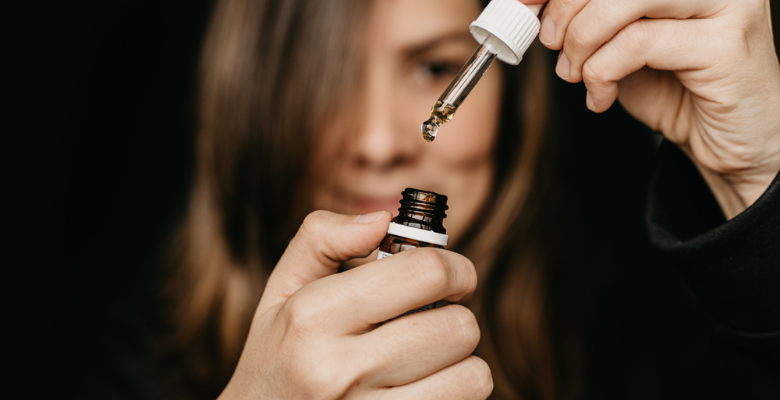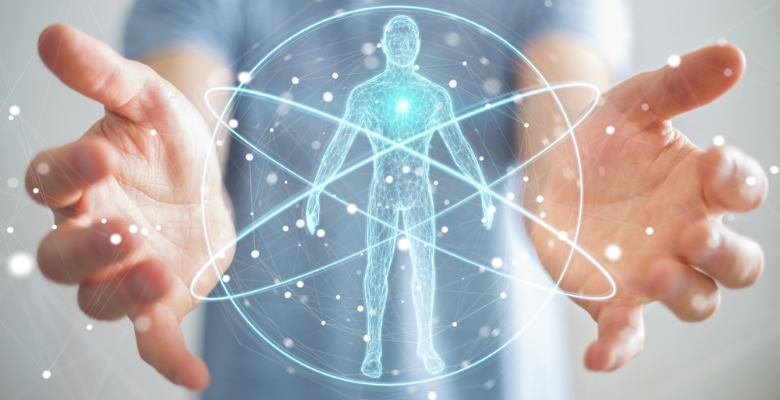Fatigue, insomnia, headaches, anxiety, depression and difficulties in memory, focus and attention are some of the symptoms commonly reported by patients after COVID-19infection. This condition is due to an exaggerated immune response of the body to the virus, which leads to imbalance in the production of inflammatory cytokines inflamatórias – proteins of the immune system.
Some studies have shown the safety and efficacy of cannabidiol (CBD) in severe inflammatory conditions. However, it is important to keep in mind that in the case of COVID-19, we still do not have scientific evidence to prove the antiviral effect of this phytocannabinoid specifically in fighting this disease, either protecting against infection or treating it.
On the other hand, regarding the treatment of post-COVID syndrome, phytocannabinoids have shown satisfactory results in controlling the symptoms that appear in the subsequent phase of the disease. That is what we are going to talk about here, bringing studies that point to said efficacy, highlighting an ongoing Brazilian study.
Medicinal cannabis and post-COVID-19 syndrome
With the scientific discovery of Endocannabinoid System in the 1990s, several studies emerged validating the anti-inflammatory action of phytocannabinoids – especially CBD – in viral conditions.
Despite preclinical studies showing therapeutic effects of CBD (cannabidiol), THC (tetrahydrocannabinol) and CBG (cannabigerol) phytocannabinoids against several viral diseases, there is, so far, no scientific evidence that indeed proves the antiviral effect of said cannabinoids in fighting Covid-19, either protecting from infection or treating it.
>> Read the scientific review from Uwe Blesching on Medicinal Cannabis and Coronavirus Diseases
The pathogenesis and clinical complications related to the disease mainly involve a complex immuno-inflammatory cascade. In this sense, the therapeutic strategy in COVID-19 is based on the suppression of infection and inflammation, as well as on immune modulation.
The role of the endocannabinoid system is fundamental in modulating said immune inflammatory responses, which is why cannabinoids become important allies. This therapy highlights the activation type-2 endocannabinoid receptors (CB2) a G-protein-coupled receptor, which mediates several anti-inflammatory activities and modulates numerous signaling pathways.
The terpene beta-caryophyllenecommonly present in the Cannabis plant, is a selective agonist to CB2 receptor and produces therapeutic effects by activating CB2 receptor and other nuclear receptors. It is based on these pharmacological and molecular properties, and its therapeutic potential as immunomodulator, anti-inflammatory and antiviral, that beta-caryophyllene also stands out in this context.
The study recently published in the scientific journal Frontiers in Pharmacology illustrates this perspective, suggesting beta-caryophyllene as a promising candidate in the therapeutic and/or prophylactic process of managing the trinity of infection, immunity and inflammation related to COVID-19..
>>You can read the full research here: β-Caryophyllene, A Natural Dietary CB2 Receptor Selective Cannabinoid can be a Candidate to Target the Trinity of Infection, Immunity, and Inflammation in COVID-19.
Scientific evidences of cannabidiol in post-COVID-19 syndrome
Some international studies have already suggested that the anti-inflammatory properties of cannabidiol (CBD) may help controlling the “pro-inflammatory cytokine storm” that occurs during COVID-19 infection.
Brazil is gaining prominence in a study being developed by the Faculty of Medicine of USP, in partnership with the Canadian company Verdemed, to assess the potential of CBD also in the management of late symptoms that occur after COVID-19 infection.
According to the researchers, the symptoms of post-COVID-19 syndrome may persist for more than three months, considerably compromising the quality of life of patients. The most common symptoms include generalized fatigue, asthenia, fibromyalgia, shortness of breath, palpitations, body aches, impaired memory and sleep disorders – being reported by about 20% of patients, two months after the disease onset.
As there are several scientific studies indicating positive responses from cannabinoid derivatives in the management of said symptoms, the Brazilian study that evaluates the use of CBD in post-COVID-19 syndrome is entering its third phase, and human tests are now being conducted. The intention is to recruit about a thousand volunteers for the experiment, scheduled to start in October 2021.
Scientists also draw attention to the potential of CBD not only in fighting physical fatigue, but also mental fatigue. This is because anxiety, depression and post-traumatic stress linked to recurrent memories from the disease are common, especially in patients who have been hospitalized for a long time. In this context, the CBD can help restore the quality of life and well-being of these people.
Other assumptions about the usefulness of medicinal cannabis in post-COVID-19 syndrome guide scientific studies that bring promising results.
An example is this study published in the journal Drug Development Researchwhich also assesses the pathogenesis and complications of infection from a complex immuno-inflammatory cascade.
The research highlights the activation of CB2 receptors and the consequent regulation process of signaling pathways, controlling immunoinflammatory mediators that include cytokines, chemokines, adhesion molecules, prostanoids and eicosanoids. In addition, the study also suggests the use of cannabinoids as adjuvants, acting with other drugs to maximize synergistic effects and minimize possible side effects..
>> You can read the full study here: CB2 receptor-selective agonists as candidates for targeting infection, inflammation, and immunity in SARS-CoV-2 infections.
Scientific evidences of post-COVID-19 symptoms
Although the main symptoms of COVID-19 manifest themselves acutely and the majority of patients fully recover, it is required that the medical community pay attention to this significant portion of patients who are experiencing post-COVID syndrome.
While most scientific research related to the disease symptoms prioritizes the analysis of severe cases and those in need of hospitalization, this study brings another perspective, encompassing an experiment with patients who initially had no or few symptoms of infection – that is, in non-hospitalized patients.
The experiment included 958 patients who tested positive for COVID-19, who were observed over the period between April and December 2020 for the evaluation of long-term symptoms and disease antibodies.
Symptoms such as anosmia, ageusia, fatigue and shortness of breath, which persisted mainly in the months of April – in which 442 patients were evaluated – and July, in which 353 patients were evaluated, were evidenced. Here follow the results:
- 8,6% (38/442) of patients experienced dyspnea;
- 12,4% (55/442) of patients experienced anosmia;
- 11,1% (49/442) of patients experienced ageusia;
- 9,7% (43/442) of patients experienced fatigue.
At least one of these characteristic symptoms was present in 27,8% (123/442) of patients after four months of infection and in 34,8% (123/353) of patients after seven months of infection.
In addition, the study points out that lower levels of IgG antibody and anosmia and diarrhea during the acute phase of the disease are associated with a higher risk of developing symptoms in the long term.
>> Se:e the complete study here: Post-COVID syndrome in non-hospitalised patients with COVID-19: a longitudinal prospective cohort study.
As the population of patients recovering from the disease increases, it is more necessary to advance in the researches on post-COVID syndrome, given the wide spectrum of manifestations and the strong impact on these people’s quality of life.
As we have seen, evidence suggests medicinal cannabis as a promising alternative in this context, especially the phytocannabinoid CBD, due to its immunomodulatory and anti-inflammatory properties.
These therapeutic attributes, associated with mild side effects and absence of psychotoxic effects, make CBD a safe and useful option in the treatment of post-COVID-19 syndrome. However, it is always important to emphasize that an assertive prescription requires adequate medical education in the field.
The WeCann Academy is committed to this learning journey through International Certification in Endocannabinoid Medicine.
Learn more about WeCann Academy and our selection of experts who combine, in a highly qualified way, scientific knowledge and practical experience in the medicinal use of Cannabis.
Join our community and get ready for this new frontier of Medicine!
References
Augustin M, Schommers P, Stecher M, Dewald F, Gieselmann L, Gruell H, Horn C, Vanshylla K, Cristanziano VD, Osebold L, Roventa M, Riaz T, Tschernoster N, Altmueller J, Rose L, Salomon S, Priesner V, Luers JC, Albus C, Rosenkranz S, Gathof B, Fätkenheuer G, Hallek M, Klein F, Suárez I, Lehmann C. Post-COVID syndrome in non-hospitalised patients with COVID-19: a longitudinal prospective cohort study. Lancet Reg Health Eur. 2021.
Jha NK, Sharma C, Hashiesh HM, Arunachalam S, Meeran MN, Javed H, Patil CR, Goyal SN, Ojha S. β-Caryophyllene, A Natural Dietary CB2 Receptor Selective Cannabinoid can be a Candidate to Target the Trinity of Infection, Immunity, and Inflammation in COVID-19. Front Pharmacol. 2021.
Nagoor Meeran MF, Sharma C, Goyal SN, Kumar S, Ojha S. CB2 receptor-selective agonists as candidates for targeting infection, inflammation, and immunity in SARS-CoV-2 infections. Drug Dev Res. 2021.




